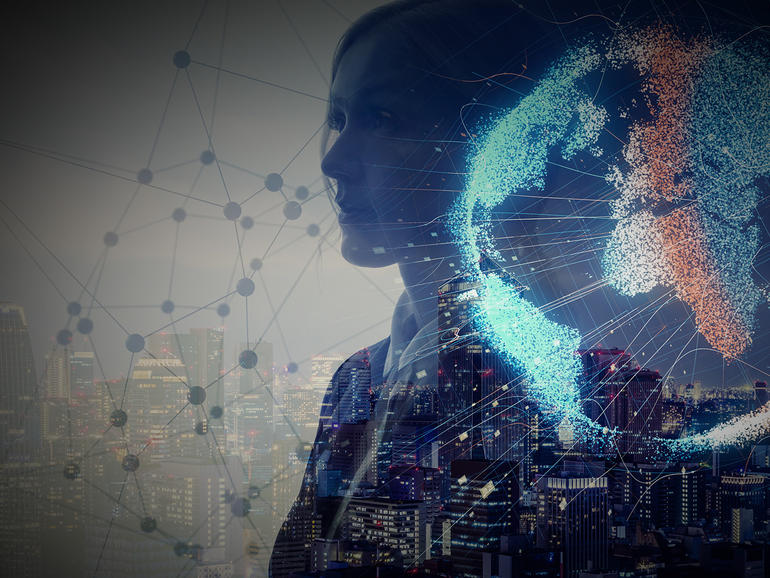copyright by www.zdnet.com
 Artificial intelligence (AI) will not wipe out the need for human workers and create a dystopian environment run by evil machines . Instead, the technology will help diversify human thinking and bolster collaboration between people and automated systems.
Artificial intelligence (AI) will not wipe out the need for human workers and create a dystopian environment run by evil machines . Instead, the technology will help diversify human thinking and bolster collaboration between people and automated systems.
That’s the view of a newly released report from consulting firm Tata Communications, which is based on a survey of 120 global business leaders. It includes input from in-depth interviews with entrepreneurs, executives, and thought-leaders, as well as discussion forums featuring internationally renowned experts from the fields of AI, machine learning, design, art, government, politics, ethics, entrepreneurship, behavioural economics, journalism, engineering, and human resources.
The study envisions a positive impact of AI in the workplace of the future. Among the key findings of the study: A huge majority of the leaders surveyed (90 percent) agree that cognitive diversity is important for management; three quarters expect AI to create new roles for their employees; and 93 percent think AI will enhance decision making.
“The prevalent narrative around AI has focused on a ‘singularity’–a hypothetical time when artificial intelligence will surpass humans,” said Ken Goldberg, a professor at the University of California at Berkeley and co-author of the report. “But there is a growing interest in ‘multiplicity’, where AI helps groups of machines and humans collaborate to innovate and solve problems.”
The survey of business leaders indicates that the concept of multiplicity, the positive and inclusive vision of AI, is gaining ground, Goldberg said.
AI is now being viewed as a new category of intelligence that can complement existing categories of emotional, social, spatial, and creative intelligence, noted Vinod Kumar, CEO and managing director at Tata Communications and also a co-author of the study.
Multiplicity is transformational because it can enhance cognitive diversity, combining categories of intelligence in new ways to benefit all workers and businesses, Kumar said.
read more – copyright by www.zdnet.com
Thank you for reading this post, don't forget to subscribe to our AI NAVIGATOR!


copyright by www.zdnet.com
That’s the view of a newly released report from consulting firm Tata Communications, which is based on a survey of 120 global business leaders. It includes input from in-depth interviews with entrepreneurs, executives, and thought-leaders, as well as discussion forums featuring internationally renowned experts from the fields of AI, machine learning, design, art, government, politics, ethics, entrepreneurship, behavioural economics, journalism, engineering, and human resources.
The study envisions a positive impact of AI in the workplace of the future. Among the key findings of the study: A huge majority of the leaders surveyed (90 percent) agree that cognitive diversity is important for management; three quarters expect AI to create new roles for their employees; and 93 percent think AI will enhance decision making.
“The prevalent narrative around AI has focused on a ‘singularity’–a hypothetical time when artificial intelligence will surpass humans,” said Ken Goldberg, a professor at the University of California at Berkeley and co-author of the report. “But there is a growing interest in ‘multiplicity’, where AI helps groups of machines and humans collaborate to innovate and solve problems.”
The survey of business leaders indicates that the concept of multiplicity, the positive and inclusive vision of AI, is gaining ground, Goldberg said.
AI is now being viewed as a new category of intelligence that can complement existing categories of emotional, social, spatial, and creative intelligence, noted Vinod Kumar, CEO and managing director at Tata Communications and also a co-author of the study.
Multiplicity is transformational because it can enhance cognitive diversity, combining categories of intelligence in new ways to benefit all workers and businesses, Kumar said.
read more – copyright by www.zdnet.com
Thank you for reading this post, don't forget to subscribe to our AI NAVIGATOR!
Share this: